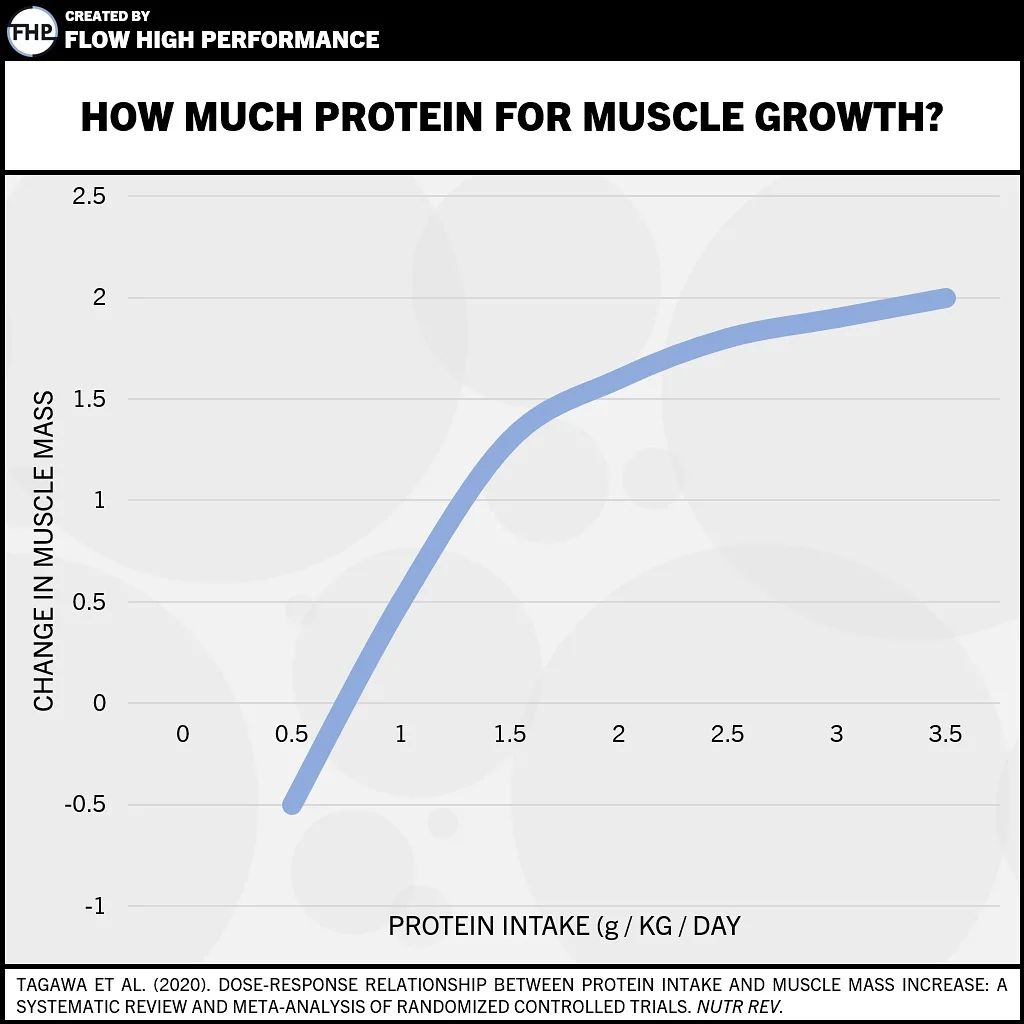Had a talk today with a guy who was sort of offended for some reason about me not eating animal products and lifting weight. He said I’d never get enough protein (never heard that one before!!!). Because lentils aren’t a thing in a world of steaks.
Anyway he said that you need at least 200 grams of protein each day when you lift but that’s of course nonsense. Not saying you shouldn’t do it, but you don’t need to either.
I’m averaging around 110-140 grams a day and I’m doing fine at ±80kg body weight.
I don’t count anything by grams except cannabis
weed is the best preworkout
It also depends on frequency of working out and the speed you want to build. Lift a couple days a week? You body has more time to get the protein you need from food without having to eat drastically increased amounts. Lift several days a week? Gonna need that protein. I’m a larger individual and I try to get around 100-120 grams a day when I’m pushing myself. Usually I will have a higher intake the day of and the next day or two after a hard lift session. Otherwise it’s around 80-100 tops.
somewhat off-topic, but what do you eat as a veg[etari]an for that much protein?
aside from protein powder, which is very expensive 😔Standard day consists of soy yoghurt with oat meal, flax seed and fruit for breakfast. Two peanut butter jelly sandwiches in between. For lunch it’s pasta/rice with lentils or chickpeas in tomato sauce (or sometimes peanut butter sauce) and most of the time I have some free soup at work. For diner it’s different everyday but I try to have at least 30g of protein per diner. In between I snack peanuts.
This is the base that I always have. Of course I have different snacks sometimes as well, I have days where I eat ‘less healthy’ every once in a while but that’s okay. I have found that keeping breakfast and lunch roughly the same is the easiest for achieving the goals I set. This base makes it easy to reach 100g per day consistently and if you struggle with reaching your own goals, I’d highly recommend it.
B e a n s. So many b e a n s.
Tvarog. Lots of tvarog.
cottage cheese is very good, although quite expensive
deleted by creator
Out of curiosity, is it pound of bodyweight or muscle? I’ve heard it both ways.
deleted by creator
It’s an interesting one. On the one hand I’m sceptical because these ratios are often shared by those who ultimately also sell protein powder and supplements. On the other hand, if they’re the figures, they’re the figures.
It could be a problem as there are surely effects from eating too much protein. Especially in individual sittings.
If I went by bodyweight but it’s supposed to be muscle mass, I’d be massively over consuming protein, though. I like to play it safe, but I’m no longer interested in bodybuilding as opposed to staying healthy.
I remember being shocked when I heard how little protein soldiers are supposed to eat when training. It’s mostly carbs, iirc. Which makes me think the military wants to cut costs in its food budget and most soldiers won’t be doing much hand to hand fighting or the military dieticians know something the rest of us don’t. It could also be that they go by percentages. 80+% carbs could still involve a lot of protein if they’re consuming enough in total. This data may now be outdated.
Just wrote a comment explaining “optimal” protein intake! You can also read my more exhaustive guide here: https://en.prolewiki.org/wiki/Essay:A_nutrition_and_fitness_guide 😉
It makes sense for soldiers because protein can make them sleepy or sluggish, and they don’t need to be building muscle as such. Carbs help for endurance and cardio, which is what they do most of the day – carrying heavy equipment, walking for miles, setting up positions… If the military wanted to add protein, they could add whey powder to the MREs on the cheap I think. I mean, it’s a military contract, it’s probably gonna be twice as expensive as your own protein powder lol.
Thanks. Useful info! Good points about the military.
The science is clear and I have finally found it: between 1.6-2g of protein per kilogram (not pounds!) of body weight every day for optimal muscle growth. After 1.6, you start to get diminishing returns but it’s still useful up to 2 grams. After that the excess is pretty much flat.
This amount also depends on how much you train. If you go to the gym 3x a week 1.6g is enough.

I simply can’t eat 200g of protein on a calorie deficit (100kg body weight) so during my cuts I just get at least 100g and don’t worry about anything above that. 1g per kilo is pretty much the least amount you can get away with to still build muscle.
This is pretty interesting and very helpful. Thank you for sharing it! I appreciate it.
Not a body builder here, but I think I read somewhere that the average American eats twice the suggested amount of daily protein (which makes sense when over a third of USians eat fast food every day). As a vegan I mostly get my protein from plant based meat subs, nuts, and broccoli. I recently read the CriticalResist fitness article on prolewiki, and I’m pretty sure both of you are in the healthy protein range for weight lifting (though the meat-eater is a little high).
Actually due to the kinds of processed foods Americans eat they typically get less protein than what is recommended and this causes overeating. Your body focuses on protein and macronutrients first as these are the most important. The body doesn’t want to stop eating until those needs are met. Since so much or our food is processed and thus low in macronutrients and consists so much of empty carbs it causes people to naturally over eat in calories in order to meet those protein and macronutrient needs. This is why whole, unprocessed, high protein foods are so important. Regardless of if it’s meat or vegetable.
Based on a short google search it seems most USians consume adequate protein or more (assuming the average American isn’t a body builder). I wouldn’t disagree that due to the processed nature and concentration of fat+salt+sugar causes us to consume too many calories of the wrong foods.
It’s not so much about the total amount as it is the quality and how much is in each thing they eat. A lot of the American diet contains less overall protein and macronutrients in the items they consume. Which causes the body to want to eat more in order to get it. Which leads back to the eating more empty calories and fats just to meet the protein needs. It’s part of why people say fast food isn’t as filling. The raw caloric intake is massive but the actual protein, quality of said protein, and macronutrients are quite low. So then their body is still wanting more food later to get it. It’s like if you have person A eat a fast food burger, with fries that has 30grams of protein total and almost no macronutrient but 1.8k calories. Then person B eat a home cooked meal that’s 50-60 grams protein, higher macronutrients, and only 800-1.2k calories. B will feel way more satiated after that home cooked meal and intake less calories than A, who will fell a greater need later on to eat more.
My point being, they may consume enough total protein, but it’s HOW they get it that is the problem.
Exactly
semi unrelated but one thing I’ll always appreciate about pulses is they don’t spoil in the fridge like meat does.
But beans do for some reason. Tried to cook kidney beans on several different occasions and they went bad after two days lol.
did you add any salt or spices to them?
Nope. Just beans.
well there’s your problem (or one of your problems at least.)
adding enough salt to anything will make stuff last longer in the fridge. adding spices (like masala for instance) will help even more. you can add them before and after cooking and it will help.
Two days is pretty fast, I also normally cook beans plain and they tend to last for several days. I just make sure my beans are submerged in water in a jar in the refrigerator.
I’m around 85kg, I exercise and my diet is mostly vegan. I don’t measure my protein intake and I’m doing fine. (Have to take a vitamin B12 supplement, but that’s about it)
Whenever I tell people I take supplements like B12 and Calcium, they are ready to scream: ‘SEE THIS LIFESTYLE ISN’T HEALTHY!!’ as if I don’t work out four times a week and am in good shape.
People will take every opportunity to shit on vegans lol.
Yeah it’s a very weird cult thing. I’m not fully vegan (I sometimes eat meat when I dine out), and whenever I mention this, people will start interrogating and asking all sorts of personal, probing questions with the biggest smirk on their faces.
It takes so much energy to just not say something rude if I’m being honest, because why it it so hard to accept that someone has a lifestyle that’s different from yours without demanding that they justify it to you?
You might want to look into zinc and Vitamin D just in case.
200+ protein when lifting isn’t nonsense if you have a low amount of fat, and have a shake. That’s about 800 calories from protein, minus 200 from digesting it. Some people even do 50% of calories from protein. Carbs vary depending on activity.
100-150 is a good amount.
Didn’t mean to say it was bad to eat 200+ grams a day. But what I do see with lots of people, especially when they just started lifting, is that they hold on to the 200 grams a day as if it was written in the Bible. This makes them so focussed on getting all the proteins in that it 1) has an unhealthy effect on the way they look at food and 2) get demotivated when they ‘only’ reach 130 for the day. I’d rather have these people not so worried about getting that much protein and instead just eating balanced, consistent and training consistently.
Oh that’s a good point yeah you want to be thinking about your dietary needs very in depth no magic numbers
Also want to point out. You pretty much can’t over eat on protein. If you say, eat too much fat or carbs your body stores what it doesn’t use. Especially carbs. For example, if you eat say 15k calories of fat, you MIGHT absorb half of that before it all passes because fats harder to digest right? If you had the same amount as simple carbs/sugars you are looking at putting away almost all of it. But back to protein. The body doesn’t store protein. Any excess you have gets burned off as fuel. It you are 15k calories of actual protein ( it saying this is possible just as an example) you would take what you could for building muscles etc. Then burn the rest off as either exercise, as heat, or just poo it out. This is where the “meat sweats” comes from. So if you are trying to put on muscles and not bulk and gain weight… Just eat more protein.
You cannot estimate protein this way, this is an incorrect method. The bioavailability of protein in each type of food determines how much protein is actually digested by your body.
Refer to DIAAS (if not available, relative PDCAAS) of foods, and their amino acid breakdown to determine your protein intake using https://en.wikipedia.org/wiki/Protein_quality and calculate how much protein you need depending on physical work you do. 1-1.5 gram per pound of body weight is the recommendation for athletes and gym people.
Lentils and plant foods actually are inferior and in general you need to eat double the plant foods compared to eggs, meat and milk, in order to get equivalent amount of bioavailable protein for your body. There is only pea and potato protein that is high DIAAS value, soya is also high but is detrimental to testosterone levels of males (limited research).
Is soya detrimental to test? Or is that the scare story because it contains phyto(?) oestrogen? (The kind that looks like oestrogen but isn’t the same thing.)
No, soy is not detrimental in healthy moderation. The amount of soy you would need to eat to effect your test would have to number in the tens of thousands of calories.
It’s a byproduct of the scare campaigns related to phytoestrogen in soy which has absolutely no effect on the human body whatsoever.
It’s a fad that people have against soy. Some people say it makes you more feminine or even go as far as to say you will grow boobs as a guy. But after years of consuming soy on a regular basis, I am yet to grow boobies.
People with no understand of science saw the word “Estrogen” and the far-right went buck wild with it. If photoestrogens made you grow boobies, the entire male population would be transfem. It is impossible to avoid soy in the modern world, and our ancestors have been eating it for thousands of years without a problem.
Far-right broscientists definitely went wild with the manboobs and feminine claims, however it is fair enough that these studies be read and understood. These are peer reviewed and researched studies.
https://www.cdc.gov/nutritionreport/pdf/Isoflavones.pdf
https://www.ncbi.nlm.nih.gov/pmc/articles/PMC6057888/
https://www.hsph.harvard.edu/nutritionsource/soy/
https://www.tandfonline.com/doi/full/10.3109/13697137.2014.966241
also even if you ate actual estrogen, loads of it would be filtered out by a first pass through the liver. it’s not bioavailable by the oral route because it’s something the body can recognize as something that it shouldn’t get from food.
and soy phytoestrogens are more likely to act as estrogen blockers than estrogens, though the effect is very weak.
deleted by creator
In lower amounts it may be okay to have. There is no need to outlaw soya out of your life perse, but there is limited research that might be helpful to keep in mind.
Most experts I have seen actually say around only 0.8g/lbs (assuming animal based) is necessary to gain muscle mass. The more important factor once you have above 0.8 is total calories. There also isn’t particularly any dangerous about 1-1.5 g/ lbs either. 1.0 is definitely a nice safe target though for sure.
None of this controls for type of athlete nor what stage of training.
The most common thought is to increase protein when you are cutting calories to maintain muscle mass in a cut. A recomp diet would be similar.
Type of protein does matter but if you have increased your protein intake when plant based above 0.8 or 1.0 or whatever, it ends up not mattering very much. This is key because there are people who cannot because of their genes maintain cholesterol levels healthily eating much animal based products. I.e. there isn’t anything necessarily “inferior” about plant based protein sources.
You need to control how much calories go in, and it can become an issue if you want to keep diet trimmed. The more particularly important issue is how do you get your 20-30 grams of high bioavailable protein post workout. Whey isolate cannot be an answer for everyone, as it has lactose, and long term usage of it creates kidney stones.
There is also an issue with plant foods not just having less bioavailability, but also incomplete in terms of 9 amino acids that make the full protein. So you need to do some protein mixing to proportionately balance deficient amino acids of whatever different plant foods you consume.
The inferior part is most plant sources have protein bioavailability well below 60%, which gives you less room for diet adjustment, and denser protein meals.
All this can just be accounted for with a bit of extra effort to read about where to get the best plant based sources of protein. It’s not particularly hard. Most vegan body builders end up getting pretty interested in the different sources and combinations of proteins. It’s all great knowledge to have in general.
Protein mixing is the technique used for this, to account for pairing up foods to create complete protein meals. Its not hard, but from how much nutrition and diet stuff I have learnt, it becomes an issue if you want to have denser post workout protein. As an example, it is common practice to pair up peas or lentils or beans with rice, for a good carb-protein meal. Whole wheat works excellently in India and wherever it is eaten daily. Vegans (and myself) use whey isolate-peanut butter mixtures with milk as another example.
For those with no problems against lactose, whey isolate becomes very easy to use. But for those with lactose intolerance or vegans that avoid dairy, it becomes an issue. Even though I am not vegan, I do cater to helping build diets for friends and family (my dad as doctor rarely has suggestions, and corrections are unneeded), and I like to have this knowledge.
between 120 and 160 at 72kgs, honestly you can still get results as long as you eat SOME of it. Most of my growth happened when i wasn’t tracking macros and consuming way less of it











